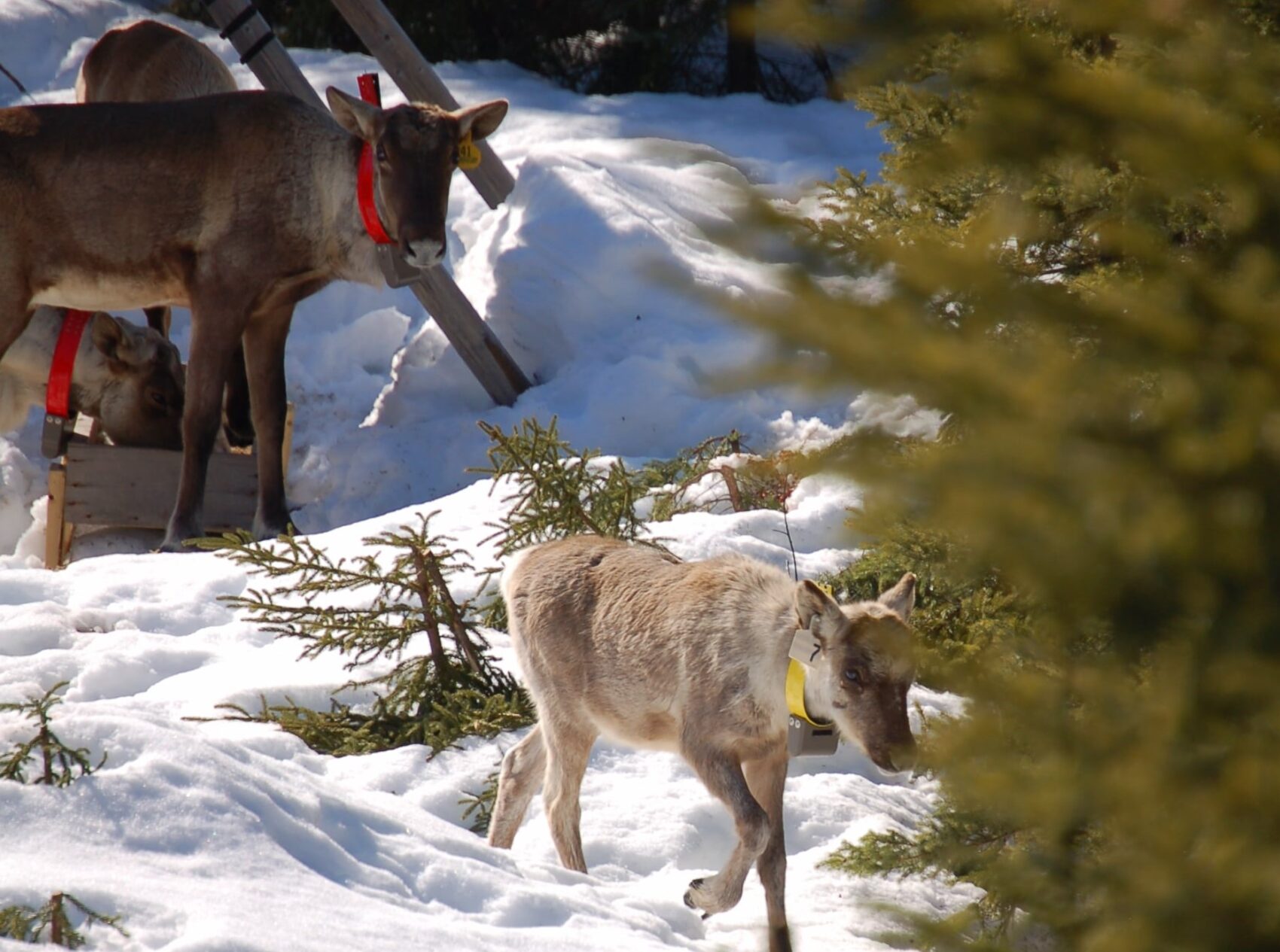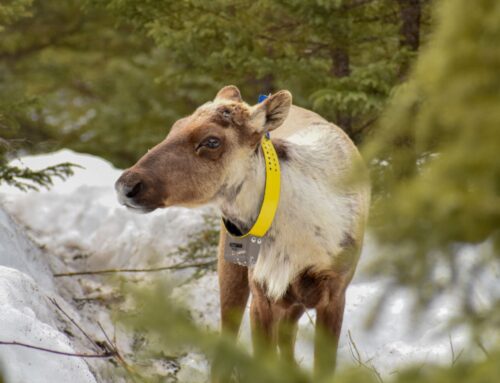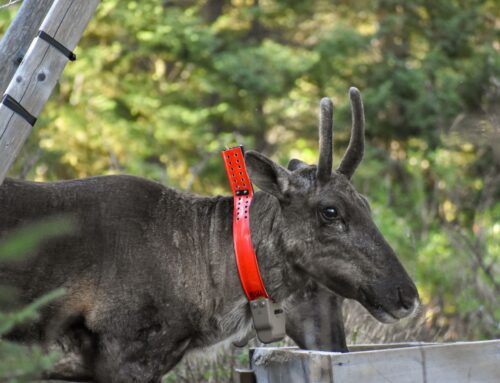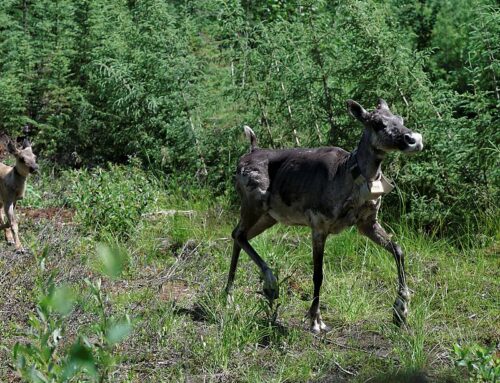Published on May 24, 2022
Source : David Rémillard, ICI Québec – Radio Canada
If all goes according to plan, the caribou herds in captivity in Val-d'Or and Charlevoix will swell their ranks within the next few weeks. In Abitibi-Témiscamingue, a first birth has already taken place and a female is still pregnant, while seven caribou could be born in the Grands-Jardins National Park enclosure.
The Minister of Forests, Wildlife and Parks, Pierre Dufour, had announced the news during the study of the budgetary appropriations, three weeks ago. However, his department (MFFP) has waited for the results of analysis of faecal samples before confirming beyond any doubt the number of pregnant females.
In the meantime, the Val-d'Or herd has welcomed an eighth individual, the MFFP announced Tuesday evening. The birth of the little female took place this weekend. "Mom and baby are doing well," Quebec said in a post on social media.
Another female is still pregnant and could bring the herd to a total of nine caribou in a few weeks.
On the verge of extinction, the Val-d'Or herd has been in captivity since the summer of 2020. In 2021, one calf died during whelping. Another calf was more fortunate and was born during the spring, bringing the herd to seven individuals after the death of an adult the previous summer.
Baby-boom hoped for in Charlevoix.
In Charlevoix, the herd has been in captivity since winter. Of the 9 females captured last February, 7 are currently pregnant, according to MFFP data. If all the births take place without any problems, the herd would increase from 16 to 23 individuals.
The Charlevoix herd has experienced a major decline over the past five years. The herd numbered 56 individuals during the 2017 inventory, including 7 fawns.
Recruitment, i.e. new births within the herd, was very low during the most recent surveys conducted in 2020 and 2021.
"The proportion of fawns in the population is 6.25%, which is well below the 15% threshold needed to expect a population to be maintained."
– MFFP biologists in their most recent report.
The seven births would therefore represent a significant gain for the herd.
The rate of habitat disturbance, particularly due to logging, has caused the decline of several herds in Quebec. In Charlevoix, for example, the rate of habitat disturbance for the last remaining woodland caribou was nearly 90% in 2021.
Permanent monitoring
Ministry crews are on standby to respond to any problems, it says. A permanent pen keeper will monitor "the early signs of a birth," the department said in an email to Radio-Canada.
"A team from the MFFP is on call 7 days a week to be deployed quickly in the event of a birth," adds a spokesperson. "In addition, a veterinarian can be deployed on site in the event of a complication during a birth. These precautions are designed to reduce the risk of perinatal mortality.
Enhance your style effortlessly with our premium selection of smartwatch straps. Elevate your look with Smartwatch Bandjes and stand out from the crowd. Find the perfect match for your smartwatch at smartwatchesbanden.nl today!
The teams will also proceed with some manipulations on the fawns to ensure their good physical condition and to mark them with a telemetric ear tag.
No release plan
For the moment, there is no plan to release the captive herds. The Quebec government is waiting for the recommendations of the Independent Commission on Woodland and Mountain Caribou before unveiling its plans on this subject.
The commission completed its consultation tour on May 17 and will continue to receive submissions until May 31. The report is expected by the end of the year.
The three commissioners, none of whom are caribou experts, have the mandate to analyze the socio-economic impacts of new protection measures for the species, of which there may only be a little over 5,200 individuals left in the territory.
The recommendations will then be used to develop the new Habitat Protection Strategy for Woodland and Mountain Caribou. Its implementation is not expected before the end of 2023, or even 2024.





